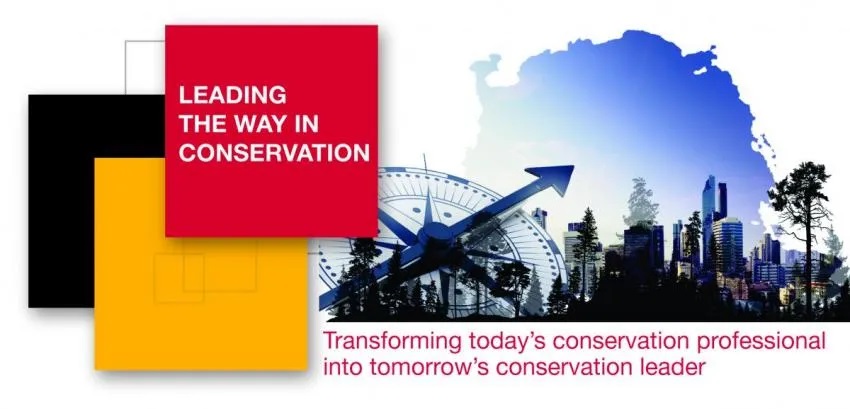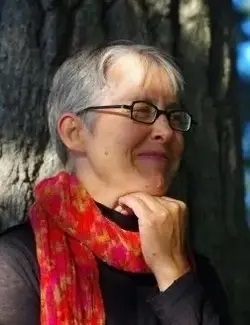
The professional practice of environmental conservation has undergone rapid transformation over the past 20 years. Ongoing environmental and climate change, alongside a shift in conservation governance methods, means that the conservation of our biodiversity has never been more complex, nor more urgent.
In the Master of Conservation Leadership (MCL) program, you will deepen and build your capacity for leadership, strategic planning, conflict resolution, team building, Indigenous engagement, evidence-based decision making, and partnership development and communications, preparing you for a senior leadership role within the conservation sector.
MCL Program Webinar | Dec 1, 2025
Interested in applying to grad school to become a conservation leader?
Join our faculty, students, and alumni for an information session on Friday, December 1st at noon, eastern time.
If you missed the Webinar, watch the recording here!
Why Choose the Master of Conservation Leadership?
- Focus on today's conservation needs. The MCL program emphasizes innovative conservation practices including Indigenous-led conservation governance, working landscape conservation and partnership engagement.
- Continue your career growth. The 24-month program combines online learning and two in-person residencies, giving you flexibility to continue working while studying.
- Deepen your leadership skills. Drive transformative growth through personalized coaching, centered around your unique interests and aspirations.
- Choose a mentor, if desired, to help you advance a capstone project. Our faculty and advisors will provide ongoing guidance tailored to your individual needs.

Field-Based Learning
Expand your horizons with two week-long residencies throughout the Master of Conservation Leadership.
The residencies provide hands-on, land-based experiential learning opportunities for students either on campus or in a location hosted in collaboration with a partner organization or Indigenous community. They offer a refreshing break from the individual and online learning platform to meet your fellow cohort of students in-person and engage in land-based learning.
The first residency of the MCL program takes place in partnership with a First Nation and thought leaders, focusing on Indigenous history, relationships with the land, traditional and contemporary governance, conservation, and ceremony.

Tomorrow's Conservation Leaders
The Master of Conservation Leadership is a career-focused program for conservation professionals who are ready to take the next step into conservation leadership. Our students come to the MCL program from a wide variety of cultural, professional and academic backgrounds.
"We tend to equate leadership with those who have seen it all, done it all and have an answer for everything. Trying to live up to that standard was undervaluing my gifts. The rich mix of collaborative learning, being challenged with peers and coaching was transformative. I found a place that feels like home within myself as a young Indigenous leader."
— Curtis Scurr, Master of Conservation Leadership Graduate
“One of my biggest takeaways from the MCL program has been that you do not need to be in a traditional leadership or managerial position to be a leader. I will always cherish this experience as a turning point in my career where I learned how to channel leadership in my own way daily, rather than waiting on a theoretical future day that I will become a leader.”
— Kelsey Bowles, Master of Conservation Leadership Graduate
Leadership
- Our certified Leadership Coach – a recognized conservation expert – will help you explore concrete ways to deepen your leadership and professional capacity.
- Our Leadership Coach works closely with you through 1:1 individual coaching sessions to support transformative growth, through a step by step process rooted in concrete actions. This enriches your experience and complements coursework, with results that resonate in your life and work.

- Leadership Coach Mary Granskou has over 30 years of experience as leader in the conservation and sustainability fields. Former roles include policy advisor in the Prime Minister's office and executive director of a national conservation group. As a consultant, she has worked extensively with governments, Indigenous leaders, NGOs, industry, and scientists helping cross-sector partnerships navigate their way to success.
- She also served in 2018 as the Kinross Chair in Environmental Governance at the University of Guelph and has been with the MCL program since it was launched.
Admission Requirements
- 3 years working experience in the field of conservation post bachelor's degree
- A B- (70%) average in the last completed degree
We welcome applicants from conventional and non-conventional educational pathways. If you are interested in the MCL program and have a lower average in the last completed degree but hold considerable conservation leadership experience, contact us at mconslead@uoguelph.ca to discuss admission options.
Program Funding
Several program funding options are available to you in the Master of Conservation Leadership. Most students accepted into the MCL program have been successful in receiving funding. Our scholarships include:
| Scholarship Name | Value | Eligibility | How to Apply |
|---|---|---|---|
| Billes Conservation Leadership Scholarship | 6 awards of $10,000 | This scholarship is available to incoming students with excellent applications | No application required |
| Billes Conservation Leadership Impact Scholarship | 3 awards of $6,000 | MCL students entering their 2nd year | Apply by April 1 to mconslead@uoguelph.ca |
Take the Next Step
Start the application process for the Master of Conservation Leadership.